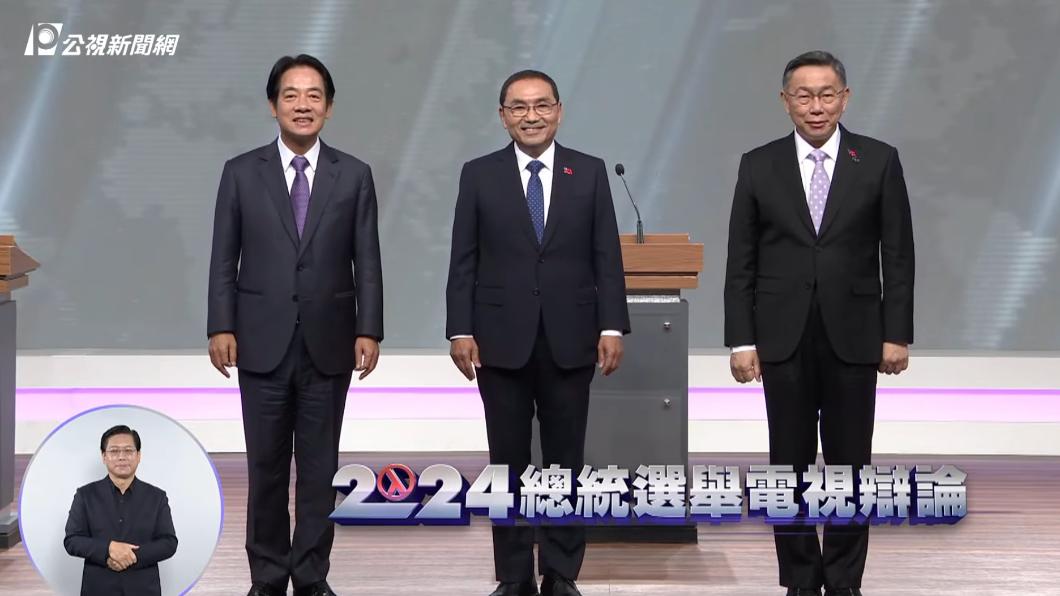TAIPEI (TVBS News)— On Saturday (Dec. 30), Kuomintang (KMT) presidential candidate Hou Yu-ih challenged the effectiveness of President Tsai Ing-wen's foreign policy, often referred to as the "the way of Tsai," questioning whether this approach has resulted in a lack of communication between Taiwan and the People's Republic of China.
Hou also questioned why this supposedly admirable approach had severed Taiwan's relations with nine former allies, why it had led to a one-year extension of military service, and why it had enhanced the risk of Chinese fighter jets breaching Taiwan's airspace.
During Saturday's presidential debate, moderated by Taiwan Television Enterprise (TTV), this question regarding U.S.-Taiwan relations was posed to the three presidential contenders.
They were asked to state their stand on President Tsai's policy and how they plan to handle future U.S.-China-Taiwan relations.
Countering allegations from Democratic Progressive Party (DPP) presidential candidate Lai Ching-te about KMT's involvement in tainted politics, Hou questioned why the issue was not stringently addressed during the DPP's eight years in power.
Highlighting his support for the Economic Cooperation Framework Agreement (ECFA), Hou asked why Taiwan's dependence on mainland China still stands at 35% now.
He also addressed concerns over cross-strait flight operations and questioned why Chinese students have more difficulty finding employment in Taiwan than anticipated.
Lastly, Hou responded to Taiwan People's Party (TPP) presidential candidate Ko Wen-je's questions, claiming that he would choose a "middle path" following the Constitution of the Republic of China (Taiwan).
He pledged to work hard for the people, stressing his start as a grassroots public servant, and, after 15 positions, would maintain administrative neutrality without reliance on any side.



